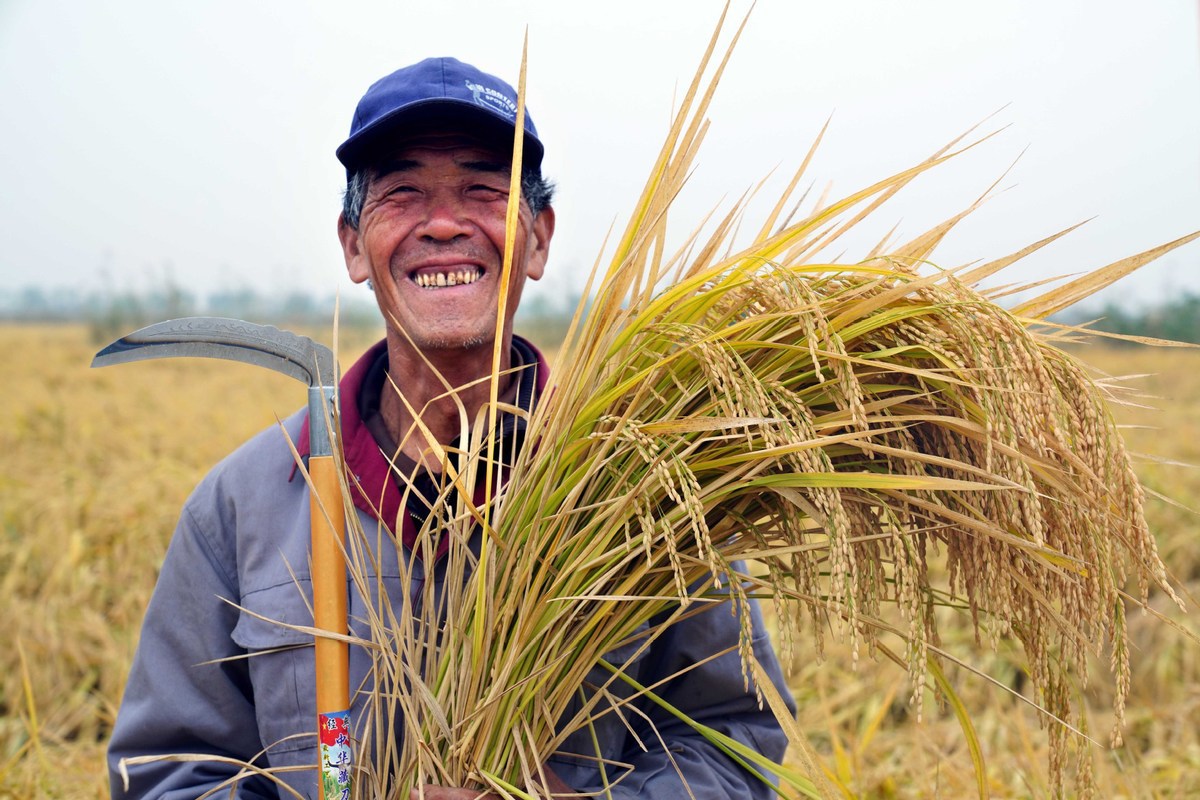Caring for the aged in the countryside is a big challenge
By Kang Bing | China Daily | Updated: 2020-12-01 07:27

Editor's Note: Thanks to China's rapid economic development, strengthened environmental protection and improved public healthcare, life expectancy has increased in the country, which incidentally has also created a new challenge for the country: the aging population. What should China do to meet the aging population challenge? In the fifth of a series of commentaries, a senior journalist with China Daily looks for the answer:
The government has taken many measures to deal with the aging society challenge. But it should also expedite the process of establishing an old-age insurance system in rural areas to ensure that no elderly people are left behind in the country's pursuit of common prosperity.
By the end of last year, China had more than 250 million people above the age of 60, accounting for 18 percent of the total population. And as a consequence of about 200 million young rural laborers moving to cities in search of better-paying jobs, the percentage of senior citizens in rural areas has greatly increased compared with urban areas.
While old-age insurance now covers almost all retired people in cities and towns, its coverage in the countryside where more than 40 percent of China's 1.4 billion people still live is very low.
As a result, while retirees in urban areas, in general, can enjoy their retired life traveling around or engaging in other leisure activities, thanks to the pension they receive, their rural counterparts have to keep toiling in the farms until they can no longer work.
To help rural residents, the government introduced a cooperative medical insurance system 10 years ago. Under the system, a farmer pays about 200 yuan ($30.40) per year while the governments at different levels pay a larger amount as premium for insurance, which covers about 60 percent of the farmers' medical costs. The medical insurance system, which covers more than 90 percent of the rural population, has been especially welcomed by the elderly residents in rural areas who are vulnerable to diseases.
Along with the medical insurance system, an old-age insurance program was also introduced, on a trial basis, in rural areas. Under the program, a farmer pays between 200 yuan and 2,000 yuan as annual insurance premium for 15 consecutive years to get a monthly pension of 80-350 yuan.
For those close to or above 60, they can even pay a onetime lump sum premium. With 80 yuan, a person can buy 20 kilograms of rice, enough for a month, and with 350 yuan, one can live a decent life in the countryside considering the fact that rural people usually grow vegetables and raise chickens in their yards for self consumption.
Humble as the program seems, it is a good beginning for a pension system for the elderly in rural areas. But, unfortunately, only about 10 percent of the governments in the countryside has introduced the old-age insurance program, because huge investments are required to run it and local governments in poor regions lack financial resources.
For the program to cover the entire countryside, the central government needs to introduce specific laws for the protection of senior citizens' rights in the countryside, in order to make it mandatory for the local authorities to implement it.
Also, the government should allocate more funds for the program during the 14th Five-Year Plan (2021-25) period to bring more benefits to the vulnerable group while requiring civil servants at the grassroots level to focus more on eldercare.
Local bodies in rural areas have an important role to play in providing proper care for elderly people in villages. Usually, each administrative village (comprising a cluster of several villages) has a leading body composed of a Party secretary, a village head and a number of members. Being local residents themselves and trusted by their fellow villagers, these people have a better knowledge about the living and health conditions of the elderly people. With the government providing necessary resources, they could do a lot more to help the senior citizens.
Last year, I visited a village in Yangzhou, Jiangsu province. At the cultural center of the village, I met quite a number of elderly people playing cards, reading magazines or doing exercise using the appliances provided by the local government or donated by charity organizations.
They also have a volunteer group on call which helps any senior citizen in need, and are planning to start a daytime nursing center in the village, similar to the community nursing centers in cities, to better serve the elderly people.
And they are taking or planning to take such measures with the village's fund-accumulated from the profits earned from a number of enterprises collectively owned by the villagers. Such arrangements exist in many villages of Jiangsu and Zhejiang provinces, which have strong rural economies.
This model, though difficult for many villages in the poor regions to emulate, can be an important case study, which can help the authorities to further improve the eldercare system. And with the government constantly making efforts to perfect its old-age insurance system in rural areas and with leading rural bodies playing their due part, people in rural areas can also live a happy life after retirement.
The author is former deputy editor-in-chief of China Daily.























